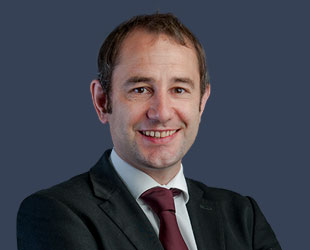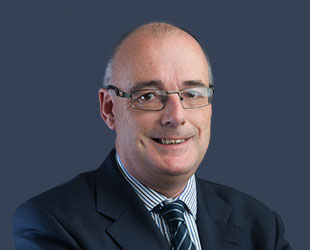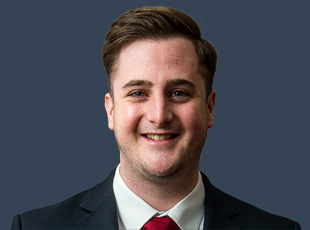- Swansea (Main)01792 773 773
- Caerphilly02920 860 628
- Cardiff02920 225 472
- Carmarthen01267 234 022
- Cowbridge01446 771 742
- Fishguard01348 873 671
- Haverfordwest01437 764 723
- Rural Practice01267 266 944
- St Davids01348873671
- Please note that all phone calls are recorded
Stroke Misdiagnosis Claims
When someone has a stroke, quick treatment is essential. It can be the difference between life and death, as well as helping to minimise any long-term damage. If you or a loved one have suffered as a result of medical professionals failing to diagnose a stroke promptly, you may be entitled to stroke misdiagnosis compensation.
In the UK there are approximately 100,000 strokes suffered every year. This means that a stroke strikes every 5 minutes. A stroke is a serious and potentially life threatening medical condition that happens when the blood supply to part of the brain is cut off. Unless treated urgently, it can lead to widespread and long term disability or possibly death.
Depending on the timing of detection and treatment, the effects of a stroke can be devastating. However, timely treatment and rehabilitation following a stroke can restore neurological pathways and increase the chances of a good recovery. For many medical conditions, a slight delay will not make a significant difference in the prognosis or final outcome of treatment. However, for a stroke, early detection and treatment is crucial to prevent permanent disability.
If you’ve suffered an injury as a result of a stroke because a doctor or medical professional failed to diagnose you or refer you for treatment, delayed your diagnosis, or committed an act or omission which caused or contributed to the condition, our highly experienced stroke claims solicitors are on hand to help you claim medical negligence compensation.
At JCP Solicitors, we have specialist knowledge regarding claims for the misdiagnosis of strokes. We offer practical, sympathetic advice about the merits of your case and will handle every aspect of your medical negligence compensation claim on your behalf. From the initial application, to sourcing any scans or medical records, to negotiating settlement, to representing you at any hearings, we will be by your side every step of the way.
Wherever possible, we will use our expert negotiation skills to help you settle the matter amicably out of court, avoiding the potentially distressing process of going through a trial. However, if it becomes necessary to go to court in order to fight for your compensation, we will use all our knowledge and experience to robustly present your position, giving you the best possible chances of the court deciding in your favour.
We support local people across the whole of South, East, and West Wales including Swansea, Cardiff, Carmarthenshire, The Vale of Glamorgan, Pembrokeshire, and Rhondda Cynon Taff.
Get in touch with our stroke claims solicitors today by calling your local branch, emailing law@jcpsolicitors.co.uk, or by filling in the simple enquiry form to the right of the page.
-
- Mei Li
- Director & Head of Catastrophic Injury
-
- Nick O'Neill
- Director - Medical Negligence
-
- Matthew Owen
- Director & Head of Medical Negligence
-
- Lauren Protheroe
- Director - Medical Negligence
-
- Thomas Rees
- Director - Medical Negligence
-
- Keith Thomas
- Director & Head of Birth Injury
-
- Samuel Barnes
- Associate Solicitor - Medical Negligence
-
- Marnie Novis
- Associate Solicitor - Medical Negligence
-
- Alison Deere
- Legal Assistant - Clinical Negligence
-
- Ellie Sayce
- Legal Assistant - Medical Negligence
-
- Cheryl Smith
- Legal Secretary - Personal Injury
-
- Sam Bateman
- Trainee Solicitor - Medical Negligence
-
- Gethin John
- Trainee Solicitor - Medical Negligence
What is a stroke?
A stroke occurs when the blood supply to the brain is restricted or stopped. This causes brain cells to die which can lead to brain injury, long term disability or possibly death.
There are two main types of stroke:
- Ischaemic: where the blood supply is stopped because of a blood clot (accounts for 85% of all cases and can follow a traumatic brain injury)
- Haemorrhagic: where a weakened blood vessel supplying the brain bursts causing blood to leak into the brain
A stroke can lead to catastrophic injuries as the brain relies on a rich supply of oxygen to keep brain cells working. When blood flow is disrupted either by a blood clot or a burst blood vessel, the brain cells are starved of oxygen and they begin to die.
There is also a related condition called a transient ischaemic attack (TIA) where the blood supply to the brain is temporarily interrupted. This is sometimes called a mini-stroke. These are often a warning sign that you are at risk of having a full stroke in the near future and should not be ignored.
If left untreated, a stroke can lead to widespread and long term disability including disruption to cognitive function, paralysis, problems with coordination, balance, communication, swallowing, vision, urinary incontinence and difficulty with bowel control.
What are the symptoms of a stroke?
The symptoms of a stroke usually come on very suddenly but can vary from person to person. Symptoms will depend on the part of the brain affected and the extent of the damage. The main stroke symptoms can be remembered with the word FAST:
- Face: the face may have dropped on one side, the person may not be able to smile, or their mouth or eye may have drooped
- Arms: the person may not be able to lift both arms and keep them there because of weakness or numbness in one arm
- Speech: their speech may be slurred or garbled, or the person may not be able to talk at all despite appearing to be awake; they may also have problems understanding what you are saying to them.
- Time: it is time to dial 999 immediately if you notice any of these symptoms.
There are other symptoms that can be caused by a stroke including a sudden loss or blurring of vision, confusion, dizziness, problems with balance and coordination, difficulty swallowing and a sudden and severe headache but there may be other causes of these symptoms.
Most often a stroke occurs in people who are in a high risk group, such as someone who is elderly or has diabetes, high blood pressure/cholesterol or atrial fibrillation.
The symptoms of a TIA are the same as a stroke but tend to only last between a few minutes and a few hours before disappearing completely.
Why is a stroke an emergency?
A stroke is a medical emergency because the sooner a person receives treatment for a stroke, the less damage is likely to happen. NHS guidance states you should be referred to see a specialist within 24 hours of the start of your symptoms so that treatment can begin if necessary.
It is recommended that patients who have had a stroke receive treatment straight away to have the best possible chance of recovering without long term disability. The treatment required depends on the type of stroke, which part of the brain was affected and what caused it.
Depending on the type of stroke, treatment can be medicine to prevent and dissolve blood clots, reduce blood pressure and/or cholesterol levels. Alternatively, a procedure may be required to remove blood clots or to reduce brain swelling and the risk of further bleeding.
Symptoms of a TIA should also be treated as a medical emergency to reduce the chances of having a full stroke in the near future. You will usually be offered aspirin to take straightaway to help prevent a stroke.
How do I claim compensation for stroke medical negligence?
A patient who has suffered a stroke needs urgent medical investigation, diagnosis, and treatment to ensure permanent disability is avoided. Unfortunately, the early signs of a stroke can be missed by medical professionals and if it is misdiagnosed or not picked up this can have a devastating impact on the patient and their family, which may have been avoidable had earlier diagnosis and treatment been given.
You can claim medical negligence compensation for the misdiagnosis of strokes where you’ve suffered a related injury caused by and act or omission by a medical professional, including:
- Where a medical professional has failed to diagnose you or diagnosed you too late
- Where a medical professional failed to refer you to treatment in time
- Where the stroke has been caused by inadequate or negligent medical treatment, such as a failure to review patients on medication that could increase their chances of having a stroke
Our friendly and compassionate medical negligence solicitors will listen thoughtfully to the circumstances of your case and provide knowledgeable advice on your options and the merits of a potential medical negligence claim.
To start your medical compensation claim, get in touch with our expert stroke claim solicitors by contacting your local office. We can deal with every aspect of your claim on your behalf, from obtaining copies of your medical records and any scans, to preparing and submitting the application, to negotiating settlement and compensation.
How much compensation should I expect for stroke medical negligence?
Depending on the type and extent of your injuries, you could receive medical negligence compensation for things such as:
- Pain and suffering caused by the negligence
- Loss of earnings and future earning capacity
- The costs of home help, childcare or care
- The cost of transport to and from hospital or medical appointments
- Adaptations to your home and any specialist equipment you need
The exact amount will depend on the individual circumstances of your case. For example, someone who’s received minor injuries from which they will recover will probably receive less compensation than someone who has a permanent disability and needs long-term care.
What is the time limit to claim for stroke medical negligence?
The time limit for stroke claims is three years from the date of the injury, or from the date that you discovered your injury. This means you must start your medical compensation claim within three years. However, we strongly recommend starting your claim at the earliest opportunity to ensure that there is sufficient time to conduct a thorough investigation.
The exceptions are for if you are bringing a claim on behalf of:
- A child: you have until the child turns 18 years old to start the claim, then the child has a further three years to submit the claim themselves.
- An adult who lacks the mental capacity to start their own claim and the injury happened after they lost capacity: there are no time limits unless the person recovers capacity, in which case the three year clock starts ticking.
- Somebody who has passed away: you have three years from the date of death arising from negligent treatment or, alternatively, if the person’s death is unrelated to the negligent treatment, the clock will reset on the date of death and the executors/administrators will have three years from that date to bring a claim.
How do No Win No Fee stroke claims work?
No Win No Fee claim agreements, often referred to as ‘Conditional Fee Agreements’, are a way to fund compensation claims without the risk of ending up out of pocket.
The way a No Win No Fee claim works is, we accept your case and do not charge you any legal fees for the time we spend working on it. If you win your case, we will seek to recover the costs of our work from the Defendant (the person or organisation you’re suing), with a percentage deducted from a limited part of any damages you are awarded. This percentage is a specific amount set by law and we will discuss how much this is likely to be at your initial appointment.
Unfortunately, if medical experts are required to provide evidence in your stroke case, they cannot work on a No Win No Fee basis as we do, as they must remain independent. You may also incur separate costs, for example to obtain medical records or to pay court fees, which need to be paid at once.
We understand that you may be worried about finances during this challenging time, particularly if you cannot work due to your injury. Therefore, we can offer you a funding facility to help cover any additional costs while your claim progresses.
At the end of the claim, if you are successful, it is likely the Defendant will pay these costs. In case your claim is unsuccessful, you will be covered by an insurance policy which protects you from any adverse risk.
Why choose JCP Solicitors for your stroke medical compensation claim?
At JCP Solicitors, we make our clients’ welfare and rights our absolute priority and, as one of Wales’ most trusted law firms, we strive to achieve excellence in every case, no matter the complexity.
When it comes to medical negligence, we understand that you may be feeling vulnerable and anxious or angry about what has happened. We seek to make your stroke compensation claim as straightforward and stress-free as possible and our flexible and generous No Win No Fee structure will ensure you don’t incur hefty legal costs as your claim progresses.
Our team is the largest specialist team in South West Wales and we are recognised as one of the leading medical negligence teams in Wales in both of the independent directories, The Legal 500 and Chambers.
We are recognised for our skills by the Law Society in the Clinical Negligence Accreditation which is only awarded to law firms with the highest standards of advice and representation in medical negligence claims.
We are also members of the specialist panel for the UK Acquired Brain Injury Forum and we are recommended by leading brain injury charity Headway, a charity which raises awareness and provides support for people with brain injuries.
JCP Solicitors is independently regulated by the Solicitors Regulation Authority (SRA).
Get in touch with our medical negligence solicitors today.
Our medical negligence team includes fluent Welsh speakers and JCP Solicitors has a dedicated Welsh language coordinator, meaning our services are fully accessible in both English and Welsh. We are happy to speak with you in person, over the phone, by email or using video messaging, making it as convenient as possible to get in touch.
Get in touch with our stroke claims solicitors today by calling your local branch, emailing law@jcpsolicitors.co.uk, or by filling in the simple enquiry form at the top of the page.












